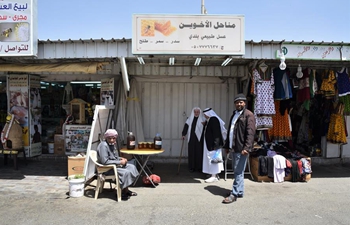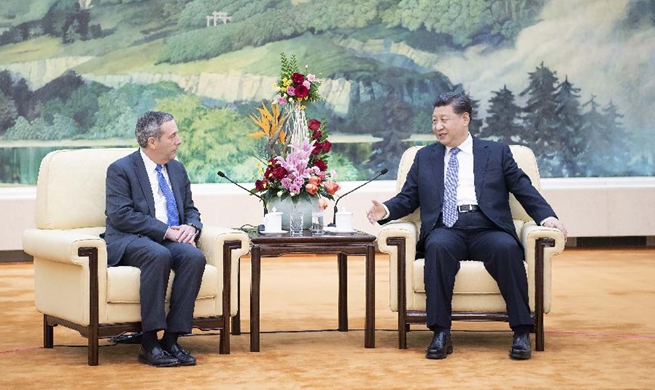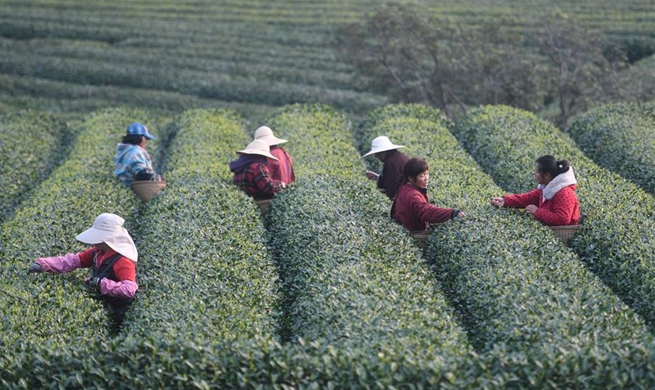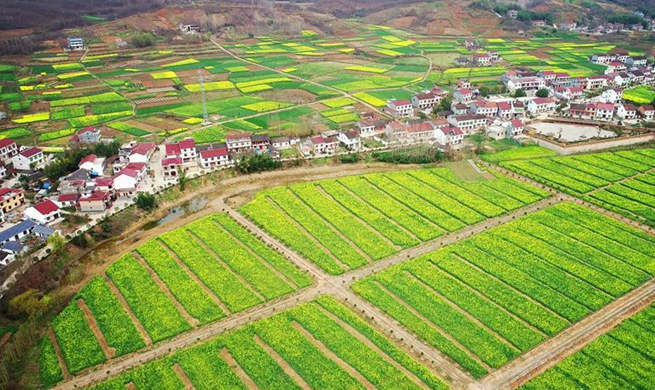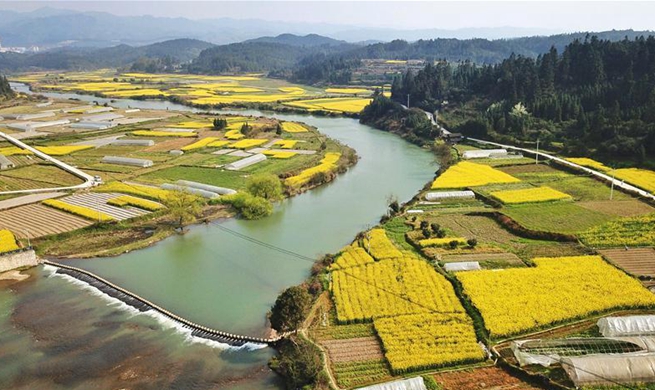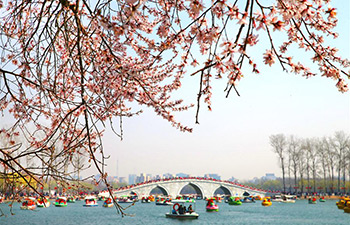MEXICO CITY, March 19 (Xinhua) -- The Belt and Road Initiative (BRI) proposed by China is a bridge to a more globalized and just world, said Arturo Oropeza, vice president of Mexico's Institute for Industrial Development and Economic Growth.
Important progress has been achieved regarding the BRI, which goes beyond the economic and commercial realms and also focuses on institutional, environmental, cultural, and social dimensions, Oropeza said in a recent interview with Xinhua.
"It's a new vision in which sharing is sought not only in the area of financial investment," but also in other areas such as technology, education, and science, allowing it to "break the paradigms of the 21st century."
Proposed by China in 2013, the Belt and Road Initiative refers to the Silk Road Economic Belt and the 21st Century Maritime Silk Road, and aims to build a trade and infrastructure network connecting Asia with Europe and Africa through the ancient trade routes of the Silk Road.
In Oropeza's opinion, China has reached out to the world to make the win-win offer a reality.
"It's an idea of win-win. Each country contributes its strengths and tries to revolve its weaknesses, and it's a joint sum," said Oropeza, who is also a researcher at the National Autonomous University of Mexico.
The expert indicated that the initiative would grow in popularity and achieve "a more unified, more conjoined world."
"The only future that exists is all together," said Oropeza.
He stressed the need for Latin American countries to join the initiative, noting that they should consider it a "great opportunity" that allows for "better communication and greater closeness" with countries that are distant geographically.
For Oropeza, infrastructure and communications must be promoted, as these sectors allow for the flow of more goods and services, such as tourism.
Additionally, students residing in countries involved in this initiative have access to scholarship opportunities in diverse majors related to energy, communications, transport, oceanography, and finance, and also benefit from academic exchange, Oropeza said.
Oropeza predicted that the upcoming Second Belt and Road Initiative Forum for International Cooperation in Beijing in April would be "large-scale," because it would allow for analysis of the initiative's successes as well as the challenges it has resolved.






